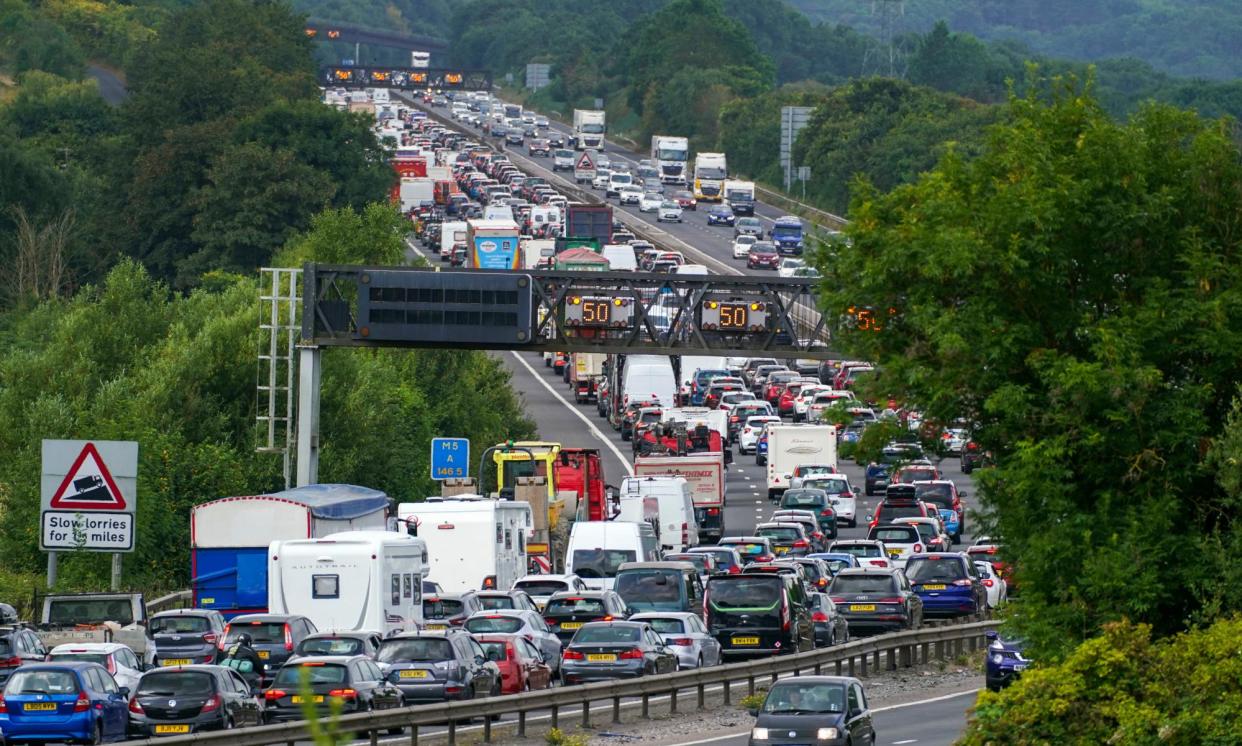Train strikes and traffic jams: UK travellers face delays in coming days

Bank holiday getaway traffic jams will signal the start of a bumpy 10 days on Britain’s roads and railways, as a rainy early May is peppered with engineering works and train drivers’ strikes.
Motoring organisations were expecting late Friday afternoon to bring the longest delays on roads, particularly those heading to the south-west from London.
The RAC forecast about 16m additional leisure trips by car over the coming long weekend, higher than average for the first May bank holiday, although analysts Inrix said roads would be less busy than during a similarly afflicted Easter getaway.
More travellers may be forced on to motorways by several partial closures over the weekend of one of Britain’s main rail arteries, the west coast mainline. No trains will run out of London Euston on Sunday, while a reduced service will run over the rest of the weekend. Further closures near Coventry, Crewe and Carlisle will mean replacement buses or diversions for passengers travelling in the Midlands and particularly on to Scotland.
There will also be rail disruption over the weekend in Cambridge and Liverpool.
Passengers have been warned to check before travel, with 487 separate projects being carried out by Network Rail over the bank holiday as part of a £75m programme.
Network Rail’s system operator director, Anit Chandarana, said most of the railway would be open for business as normal: “We know people want to travel by train and not replacement bus and we do our best to fit as much work as we can into these closures to minimise the impact on passengers and freight customers.”
Bank holiday Monday will also bring another week of industrial action by train drivers in the Aslef union, with an overtime ban commencing nationwide until next Saturday. Drivers will strike for 24 hours at each of England’s national train operators over the course of three days starting on Tuesday.
The series of rolling 24-hour stoppages will leave much of the network without any trains, while the overtime ban will also reduce schedules and severely disrupt some routes.
Most operators will not run any trains on their strike days, affecting some cross-border services to Wales and Scotland.
Train drivers will first strike across commuter services in the south of England on Tuesday 7 May. Long-distance trains and Midlands services will bear the brunt of Tuesday’s stoppages, while most trains in the north will be brought to a halt on Thursday 9 May.
An increasing number of people appeared to be heading abroad instead this weekend, with Friday expected to be the busiest day of the year so far for air travel from the UK. According to aviation analytics firm Cirium, more than 3,000 departures were scheduled, with about 10% more flights over the long weekend than at the same point in 2023.

 Yahoo News
Yahoo News 
